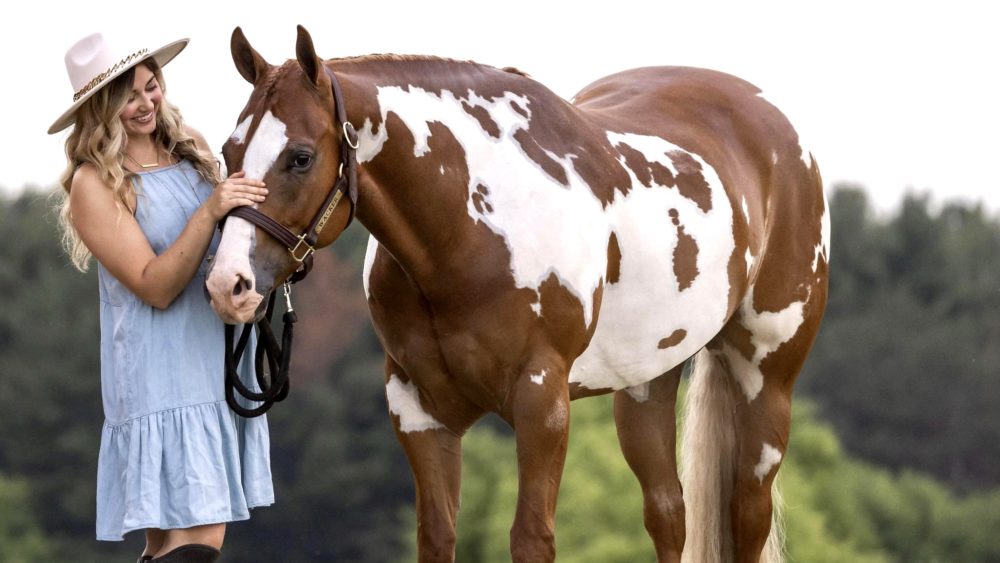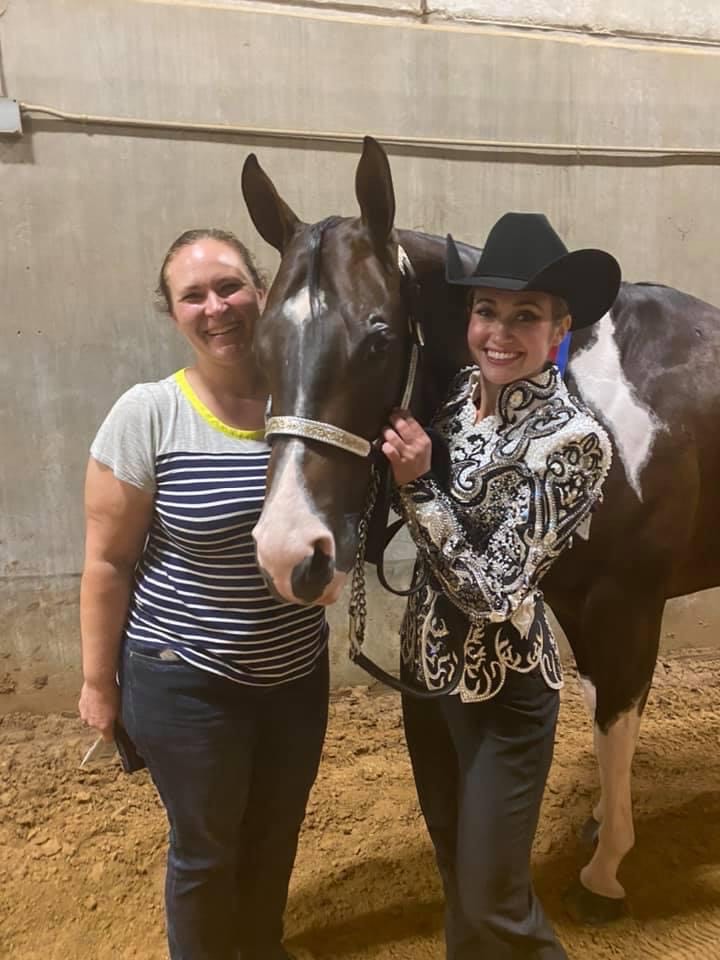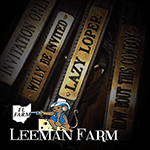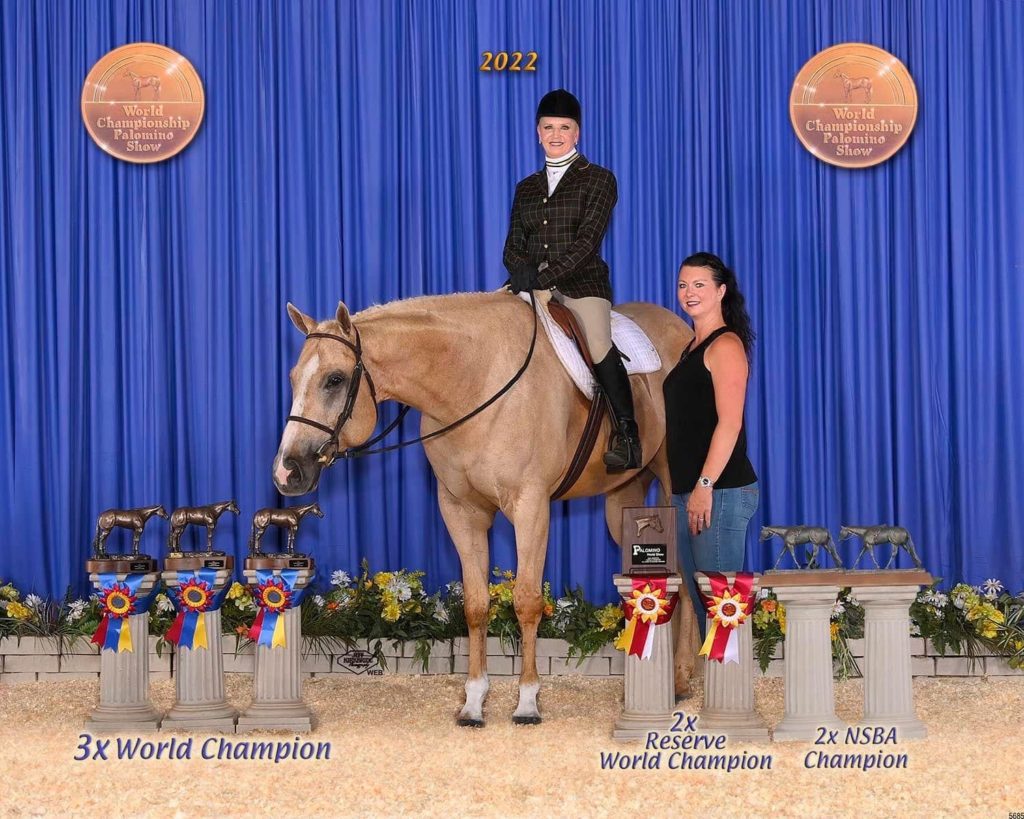As a little girl, Paige Wacker used to tell her parents how she couldn’t wait to grow up. However, after graduating college and adjusting to the “real world,” Paige realized she didn’t want to grow up.
Self-reflection while building her career as a veterinarian has forced her to step back and look at the bigger picture outside of competing with her horse.
This 3-part series discusses “real life” outside of showing horses. Part 1 highlighted career and family obligations that have led her peers and former competitors to press pause on showing.
Part 2 of this article series highlighted members of the equine industry that took a step away from showing horses, but continued involvement in other aspects such as public policy, youth leadership, scribing, and stewarding at horse shows.
Part 3 of this article features individuals that have had to step away from showing horses due to injuries and illnesses.
On June 30, 2020, Alicia Michel’s family experienced something tragic that paused any plans they had. Her husband, Dean went down to the basement of their house to start their gas water heater.
Meanwhile, their three teenage sons, Austen, Alex, and Dominic were in various places in the house. Then, when Dean started the water heater, there was an explosion. Alicia was about 150 feet from the house’s back door when she heard glass breaking, items flying out of the house, and her husband crying in pain.
Alicia said, “When I went into the house, I could see my husband standing at the bottom of our basement steps, severely burned. Luckily, our boys came out of the house uninjured.”
Dean was then taken by ambulance to Mayo Clinic Saint Mary’s Emergency Room and airlifted to Regions Burn Center in Minneapolis, MN, where he spent the next 16 days.
He ended up with 3rd-degree burns on both arms, from the mid-upper arm, down to his hands. She said, “Our boys and me, along with my family and friends, spent the next week cleaning, packing, and salvaging our personal property out of our home where we had lived for over 20 years. This was the only place my kids knew as home, and it no longer felt like home to us.”
To top it off, Alicia was driving three hours each day to visit Dean in the hospital while raising three teenage boys, running her business AM’Zing Tumblers, farming 1,200 acres of corn with her family, and managing her small horse breeding program with her two mares Flash Dee Que Madera and Sure A Red Hot Quote.
Sadly, this all occurred during COVID, so her sons could not visit their dad while in the hospital, but they did daily Facetime sessions together. Alicia said her husband had a 16-day skin debridement to help form healthy tissue, and for him to come home, he had to have someone do daily bandage changes, clean the skin, and trimming the Xenograft material.
Of course, Alicia added that to her plate, even though she “hates needles and has to leave when [her] horse is cut and bleeding for fear of passing out.”
During those 16 days, she dedicated her time to training with the nursing staff at the hospital on proper wound care for her husband. With Alicia spending the next couple of years picking up the pieces after their house explosion, she found other ways to stay involved with horses.
She was on the Board of Directors for the Minnesota Paint Horse Association (assisted with shows and the club). She supported her horse, WhiteTrashMillionaire aka “Maverick,” and me at the shows while we accomplished our goals.
Luckily, life has slowed down this year, and she can now work towards achieving her own goals with Maverick under the guidance of Alex Gryskiewicz (AKG Performance Horses).
Also, she looks forward to the prospects she’s bred and raised getting into the show ring over the next couple of years. Alicia’s most significant advice to those “pressing pause” on showing horses is, “every day is a gift to us to live, do what we love, and spend time with those we love. It is not something to take for granted as life can change literally in a second, as my family and I have experienced. We have a different perspective on life and appreciate those we have been blessed with. This has shown me the strength in our horse world when someone is genuinely in need and the understanding that people come into your life for a reason.”
Kim Welman
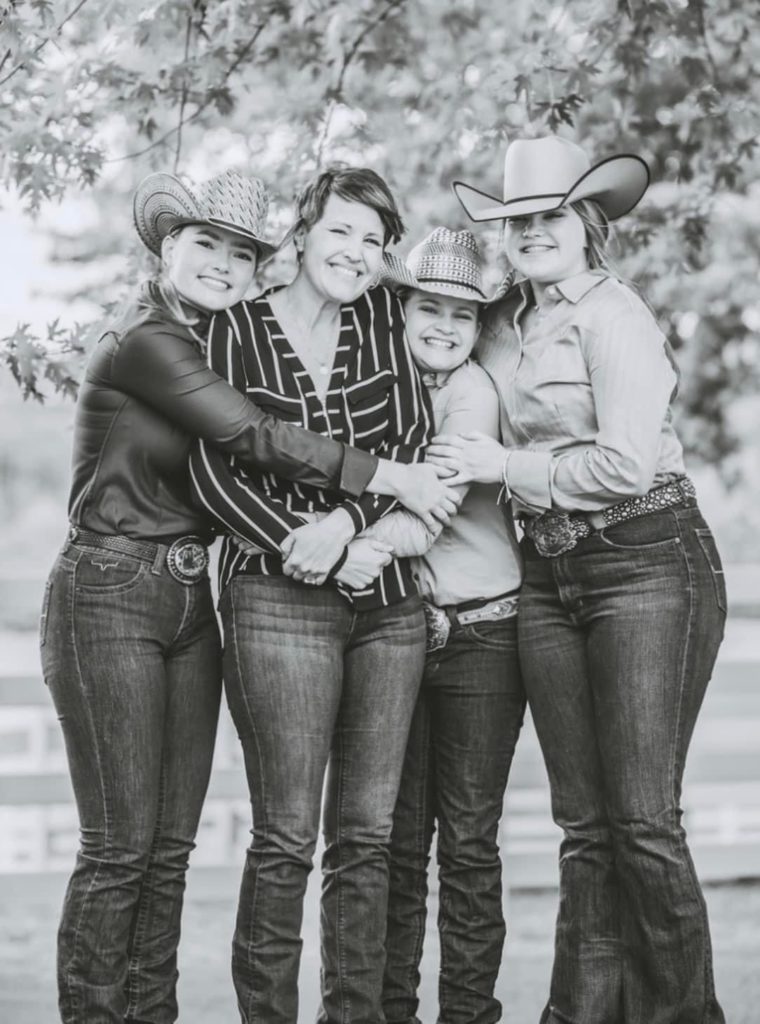 Kim Welman lives a fast-paced lifestyle as a realtor and barn manager for her family’s facility, Triple A Stables, and Brian Welman Training Center. She and her husband, Brian met by showing reining horses and continuing their legacy in the reining industry with their three girls, Addison, Ava, and Ayden.
Kim Welman lives a fast-paced lifestyle as a realtor and barn manager for her family’s facility, Triple A Stables, and Brian Welman Training Center. She and her husband, Brian met by showing reining horses and continuing their legacy in the reining industry with their three girls, Addison, Ava, and Ayden.
Although they’ve had much success in the industry, Kim has stopped showing and riding because of her hard-fought battles with cancer.
In 2017 she was diagnosed with breast cancer, then stage 3C colon cancer in 2020.
Kim said, “With my breast surgery, I had a bilateral mastectomy with immediate reconstruction (no expanders), so I was very uncomfortable for about one year. Then, I thought about starting back to riding. Still, I hadn’t been feeling well, so riding got put on the back burner again.”
Unfortunately, Kim’s treatment for colon cancer consumed one year of her life. It was “pretty intense.” During this time spent away to prioritize her health, Kim continues to get her “horse fix” by breeding their family show mares. She’s also found joy in watching her husband and girl’s show.
Luckily, she feels well enough to get back in the saddle again. Kim’s advice to people suffering from an illness and unable to ride horses is, “if I can do it, anyone can! At times, it will feel like you will never be able to ride again, but with patience and time, all the stars will re-align.”
Tina Nygren-Stetler has been showing in Western and English events since she was a young girl with her parents.
Unfortunately, Tina is too familiar with loss and illness. About 13 years ago, both of her parents died from cancer within 18 months.
Although Tina is an only child, she found comfort in her close friends during that difficult time. Tina is now married to Jared Stetler, and they’re raising their son, William, who will be in 7th grade this next year.
Tina’s reason for pressing pause on showing horses is due to diabetes. Two years ago, Tina was in a meeting at work and felt something wasn’t right. She immediately drove to the ER, and to her surprise, the doctor diagnosed her with Type One Diabetes – Insulin Dependent.
Tina said, “I remember sitting in the exam room after hearing of my diagnosis and crying because I’m terrified of needles.”
Nygren said this illness had forced her to change her habits of overworking. For example, she said, “at the MAQHA Corporate Challenge, I showed my horse, Giveyourmindaride, in both the Level 1 Amateur and Amateur Hunter Under Saddle.
When I finished my second class, I had to be excused because my blood sugar dropped, and I almost passed out. Luckily, my friends rushed to the gate to give me a soda to raise my blood sugar.”
From that experience, Tina decided to prioritize her health and focus on her education. So, she’s been working on obtaining a Master’s Degree in Learner Design and Technology at Purdue University.
This year, Tina felt well enough to compete at the Palomino World Championships. She was crowned the World Champion in Amateur Pleasure Driving with her horse Tangerine Sky aka “Pikachu,” under the guidance of Tina Langness.
Tina advises those who have to step away from showing horses due to an illness to “take care of yourself. Be willing to accept change, follow your doctor’s instructions, and remember that you must be healthy to show your horse. Stay positive and be grateful for the incredible opportunity to be with a horse, even if you have physical limitations.”
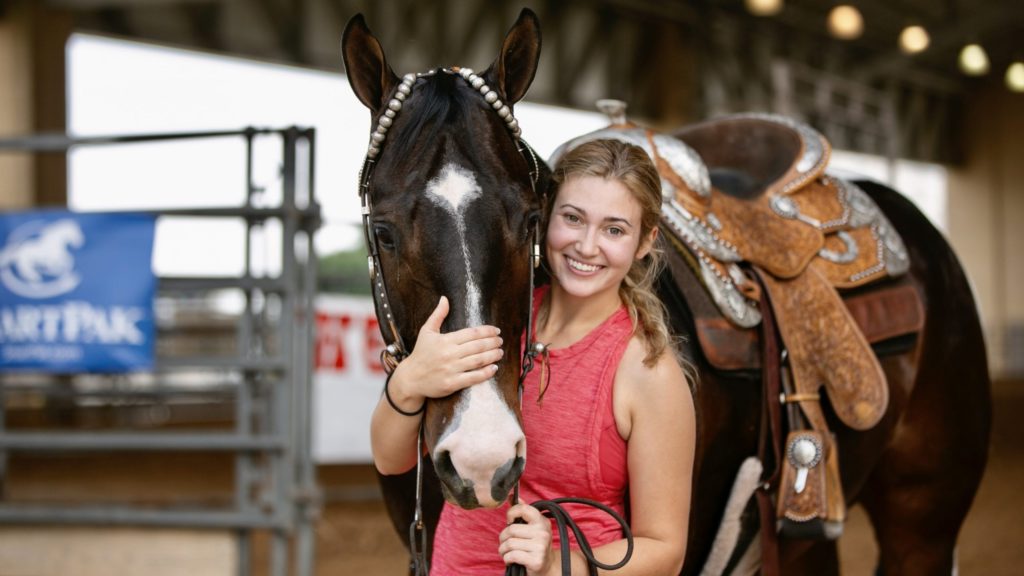 Paige Wacker (author of the article)
Paige Wacker (author of the article)
Going into this year, I had a list of goals and a plan on how to obtain each one. But, unfortunately, life had another idea.
In the spring of 2020, I was diagnosed with benign positional nystagmus (vertigo). With this condition, I will sporadically have “dizzy spells,” making performing daily activities extremely difficult.
My vertigo tends to flare up in stressful situations (i.e., preparing and showing at World Championship Shows, a long day at work, etc.).
Early in March of this year, I hit my head at work. At the time, I didn’t think I hit it hard enough to have any injury. However, for a couple of weeks after hitting my head, I continued my everyday activities with some mild nausea: spin class, work, riding, and doing showmanship. I initially thought my symptoms were due to stress at work.
However, my dizzy spells became unbearable, and I went to the ER. There, it was confirmed I suffered from a concussion. Due to this injury, I’ve been unable to ride and limited in the physical activities I can perform.
This time spent away from showing horses has taken a toll on me physically, mentally, and emotionally. I love being able to practice every day and improve my skills. Not being able to do anything besides walking made me empathize with horses on stall rest because I understand what it feels like to want to work and exercise, but your body needs time to heal.
Because of this, I decided to use my downtime to develop a fun and playful relationship with my show horse for next year, “Cannonball,” aka SuperPuncher. He’s the kind of horse with no bottom and can go all day long. Thus, I’ve been desensitizing him by taking him for walks around the barn, massages, teaching him tricks (bowing), and working on the fundamentals of showmanship.
Luckily, in the past month, I’ve been able to start running and increase my exercise. However, I’m still not cleared to resume my everyday activities fully.
My doctor says I will always have to ride with a helmet because if I hit my head while riding a horse, I could suffer from a severe brain injury.
From this unpleasant experience, I advise people who can’t ride or work with horses because of an injury or illness never to forget why they started. It’s all for the love of the horse. Instead of focusing on what you cannot do, get creative and find ways to bond with your horse.
Horses are incredible and are so in tune with our emotions. If we spend enough quality time with them, they will help us heal.
CLICK HERE to read part 1 of this series, “Stepping Away from Showing Horses – Part 1: Career and Family”
CLICK HERE to read part 2 of the series, “Stepping Away from Showing Horses – Part 2: Staying Involved”


